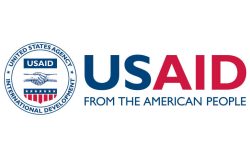Dear Editor,
I write this letter because I believe it needs to be written and not on behalf of the Office of the President.
I have the honour to have served as the Chairman, some prefer the description, “Moderator”, of President Irfaan Ali’s Press Conference. I have also had the honour to have moderated Press Conferences for former President Forbes Burnham, former US President Jimmy Carter, alongside former President Desmond Hoyte and the late Prince Phillip, Duke of Edinburgh, when he visited Guyana. I have, on the other side of the table, as a Press Reporter, participated in numerous Press Conferences both in Guyana, in the United States and other countries. I believe, therefore, it is fair to say that I speak with some experience.
The last Press Conference held by our President on Thursday, 20th June, 2024, has invited some comment, much of it unfair, both in the Kaieteur News on Friday, 21st June, 2024, a front page comment, and the Stabroek News on Monday, 24th June, 2024, focused on the President’s response to questions posed by Kaieteur News reporter Shervin Belgrave and News Source Guyana’s Gordon Moseley.
So, what is the purpose of a Presidential Press Conference? Fundamentally, it is for the President to speak to the nation through the press and for the press to be afforded a fair and reasonable opportunity to directly ask precise, pointed and searching questions of the President. And what do I mean by unfair? Let me quote from a book, Committed to Journalism, by Edmund B. Lambeth a past Professor and Director of the School of Journalism at the University of Kentucky published some 38 years ago:
• “No story is fair if it omits facts of major importance or significance. So fairness includes completeness.”
• “No story is fair if it consciously or unconsciously misleads or even deceives the reader. The fairness includes honesty – levelling with the reader.”
• “No story is fair if reporters hide their biases or emotions behind such subtly pejorative words as ‘refused’, ‘despite’, ‘admit’ and ‘massive’”. Let me add “seemingly” and “numerous”.
I counted 19 reporters at the Press Conference. Rather than resorting to the traditional means of recognizing reporters to ask a question when they raise their hands, which leads to many reporters not being recognized, each reporter, in succession, as they were seated, was recognized to ask a question and a follow-up. In fact, reporter Shervin Belgrave declined to ask a question when it was his turn. It was at the conclusion of the Press Conference when the last questions had been asked and answered, that Mr. Belgrave raised his hand, and it was the President who intervened to indulge him to ask his question.
Every President has his style and his manner in answering questions at a Press Conference. President Ali likes to be conversational with reporters and, far from being hostile to Belgrave, he answered him, albeit unconventionally, as the hearing of the Press Conference attests, in a lighthearted manner, like a father speaking to a son. After the Press Conference, the President, in fact, had a friendly chat with Mr. Belgrave. The Stabroek News also reports on the Q & A between reporter Gordon Moseley and the President, in which I did intervene, when Moseley set out to make a long statement rather than ask a question and then when the question was not answered to his liking, attempted to debate the President.
Reporters should ask tough, difficult and awkward questions. I always did, once to the chagrin of the late President Cheddi Jagan who threw me out of his Press Conference. If not getting the answer they look for, then repeat the question differently, but they are not entitled to debate the right or wrong of the answer. A reporter is entitled, however, should the answer be factually incorrect, to point out the error.
Stabroek News also invited a comment from the President of the Guyana Press Association, Nazima Raghubir, who complained about “the restrictions” placed on reporters during Presidential Press Conferences and about restrictions on “people coming to the Press Conferences”. As I earlier pointed out, some 19 reporters attended the Press Conference, each asking 2 questions, in the case of one reporter asking 4 successive questions, that amounted to the President responding to 40 questions. I ask Ms. Raghubir to refer me to any Presidential Press Conference anywhere in the world at which the President has answered that many questions.
The Office of the President, since July last year, established a Presidential Press Corp of 30 accredited reporters, one and an alternative, to each media organization of their choice. To the best of my knowledge, there are currently 15 functioning media organisations. Nineteen reporters attended the Press Conference.
Sincerely,
Kit Nascimento









